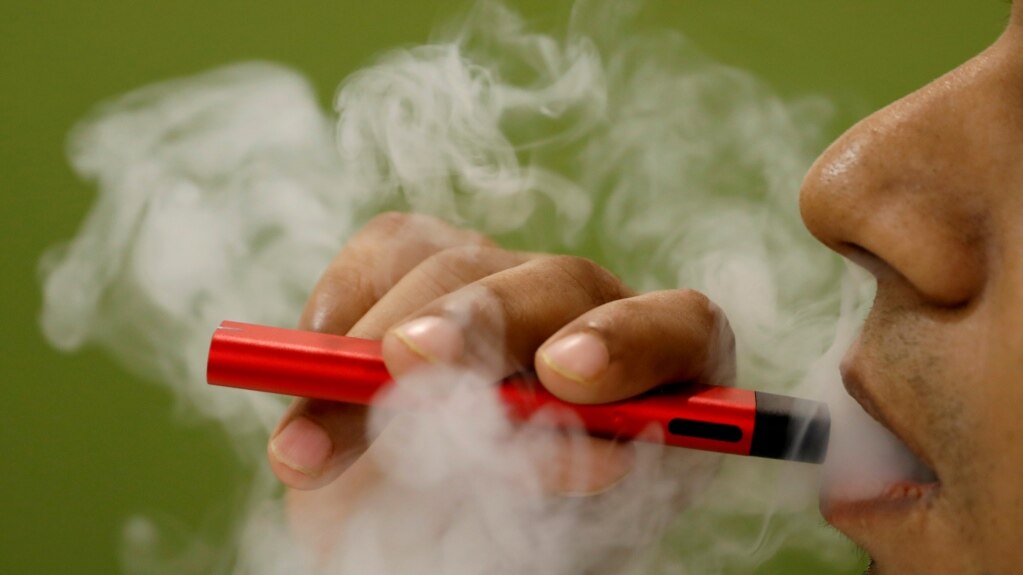Schools around the United States are installing sensors and cameras to identify possible use of vaping devices. Some administrators are also ordering serious punishments for use of the devices on school property.
Aaliyah Iglesias faced such punishment in her last year of high school in Texas. In February of 2023, school administrators caught her vaping in a bathroom.
Suddenly, so much of her high school experience was under threat: her student council presidency, her position as debate team captain and her planned attendance at the graduation ceremony in May.
She even faced possible loss of her college scholarships as a result of violating the vaping rules. She was sent to the district’s alternative school for 30 days and was told she could have faced criminal charges.
School observation equipment was used to catch Iglesias vaping. Many schools have installed the equipment without informing students.
Students found vaping can also be charged with a misdemeanor and fined up to $100. Students found with vapes containing THC, the chemical that makes marijuana users feel high, can be arrested on felony charges.
At least 90 students in the Tyler school system where Iglesias was a student have faced misdemeanor or felony charges.
School systems around the U.S. have invested millions of dollars in the observation, or surveillance, technology. Administrators have used federal COVID-19 emergency relief money to buy the equipment. Marketing materials have noted the sensors, at a cost of over $1,000 each, check air quality to help fight the virus.
Vapes are a major problem at many middle and high schools. The devices release vapor containing the highly addictive chemical, nicotine. Millions of minors report vaping despite efforts to limit sales to kids by raising the legal age to 21 and a ban on flavored products.
Some districts combine the sensors with surveillance cameras. When activated by a vaping sensor, those cameras turn on so violators might be identified.
The Tyler, Texas, schools, among others in America, have what they call a zero-tolerance policy on vaping. The school system says that tracking vape usage deals with a problem that is hurting children's health. It would not comment on punishments of students.
A leading provider, HALO Smart Sensors, sells 90 percent to 95 percent of its sensors to schools. The sensors do not have cameras or record audio but can detect increases in noise in a school bathroom and inform school officials of that immediately, said Rick Cadiz. He is vice president of sales and marketing for IPVideo, the maker of HALO sensors.
The sensors are marketed mainly for detecting vape smoke or THC. But they also can detect sounds like gunshots or words that are signs of possible bullying.
During the pandemic, HALO noted on its website that indoor air quality observation was an approved use for federal COVID relief money. Schools now also can use some of the almost $440 million vape maker Juul is paying to settle a legal action against it. The claim accused Juul of marketing its products to youth, Cadiz said.
“All it’s doing is that something’s going on,” he said. “You need someone to physically investigate the alert that comes out.”
At the Coppell Independent School District in Texas, sensors are part of a vaping prevention plan that includes educational videos and a tip line. Students can receive $50 for reporting on violators. Jennifer Villines, the district's director of student and staff services, said students “were turning each other in right and left.”
Students can be sent to an alternative school or serve in-school suspensions but are not expelled for vaping, she said.
Iglesias’ punishment included having to step down as student council president and debate captain and leaving the National Honor Society. At the alternative school where she spent a month, students do their studies without attending classes.
Iglesias was still able to attend her final school dance and graduation ceremony. Her college scholarship was not withdrawn, either. She now attends Tyler Junior College.
For her, the punishments for vaping go too far.
“The people that make these policies and implement these things sit in a room and do not walk the campuses or see the results,” Iglesias said.
I’m Dan Novak.

